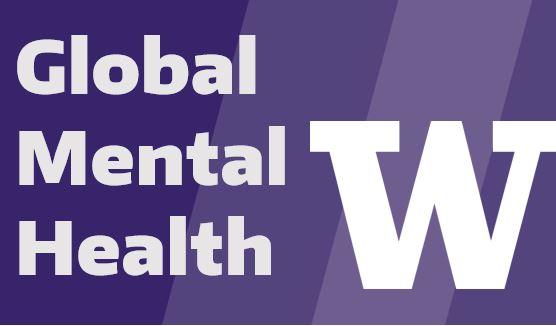So many have been asking, Can I Get a PhD without Masters’s? A Ph.D. without Masters’s..? Are you serious? That was me telling you what you’re thinking about is possible.
Let’s be honest, a Master’s degree program can be perceived as time-wasting, and it is very financially demanding and otherwise.
A good number of students coming out from the bachelor’s degree program would have this thought at the back of their mind, that is, if a “bachelor to Ph.D.” is possible.
The truth is, I will tell you the pros and cons and how to file for the application if you want to go on with the idea of a Ph.D. degree program without a Masters’s degree.
Toward the end of this article, I’d tell you why you should do a master’s before Ph.D.
Table of contents
- Can I Get A PhD Without A Masters Degree?
- How to Apply for Bachelor to a PhD?
- PhD Without a Masters: A Few Coping Strategies
- Why it is Important to do a Master’s Before a PhD Degree Program
- #1. A Master’s degree program helps you ascertain if you’re ready to do a PhD degree program.
- #2. You’ll get nice positions as a PhD if you come through Masters.
- #3. A master’s degree program helps to change your field of study in your Ph.D.
- #4. A Master’s could help you finish the Ph.D. program faster than a bachelor’s to Ph.D.
- Universities Offering PhD without a Masters
- EDITOR’S RECOMMENDATION
Can I Get A PhD Without A Masters Degree?
A Ph.D. without a Master’s has been a norm before now. After many years in the United Kingdom, the Ph.D. degree program came after the Bachelor’s degree program, without the distraction of a Master’s degree program.
While many undergraduate degree programs still lead to a Master’s Certificate too, and many still complete Masters’s degree, it is sensitively possible here to do a Ph.D. without walking into a Masters’s classroom for one day.
How to Apply for Bachelor to a PhD?
No university would publicly declare that they offer Ph.D. degrees without a master’s. However, you can get this opportunity by thoroughly researching these institutions, and their core beliefs, then weighing your chances.
Many universities worldwide offer Ph.D. without masters, and whether you get it sometimes depends on how you tender your application.
As with any other regular Ph.D. application, it is vital to check your qualifications with the universities. Different universities have different rules and regulations.
Some schools can easily offer you the opportunity, and in some cases, a Master’s degree might be compulsory, especially when you’re studying abroad.
Also, make sure you sustain lots of evidence in the application you submit about why you would be a good and competing doctoral student without a Master’s degree, and try to give concrete analogies and proof of you having the same level of academic sagacity.
You Can also read: What is Bachelor’s Degree: Meaning, cost, and types
PhD Without a Masters: A Few Coping Strategies
The first few weeks can be overwhelming, but the first thing to recall is that if your application has been approved, people believe you can do it!
If you are directly from Bachelor, ask your proposed supervisor if they would care to read through a more volume piece of work.
For example, you can go along a piece of your final work during your undergraduate or bachelor’s degree program or a dissertation and send it to 20,000 words, which is a standard Master’s length.
In your first term of your Bachelor’s to Ph.D., study your research proposal every week and review it carefully. The research characteristics are that it evolves, but it is important to remember what you proposed.
Many run a short skills session daily covering things from communication to managing projects. But be observant not to sign up for just about everything, though, ’cause you still need research time.
As a Ph.D. student, whether Ph.D. without a Master’s or Bachelor to Ph.D., you are one of a community of other Ph.D. researchers. This can be a great source of knowledge, advice, and wisdom, plus a great way of meeting new people.
In your pioneer supervision, set clear time-bounded goals for the 1st term and talk about the structure of your 1st year. This gives you things you can work on directly and breaks the project work into manageable chunks to maintain your stand as a Ph.D. without a Master’s degree program.
Why it is Important to do a Master’s Before a PhD Degree Program
#1. A Master’s degree program helps you ascertain if you’re ready to do a PhD degree program.
During a bachelor’s degree program, you will typically know the general dimensions of your chosen course. You will concentrate only briefly on your final thesis or project work.
Even if you are magnetized to a chosen field or career path, you can’t know if it’s perfect until you explore the subject. Considering that a Ph.D. without Masters demands about 6 years of concentration, wouldn’t it be good to be sure?
Because it is concentrated and research-oriented, a Master’s degree program puts you ahead of what you’re thinking to beat your brain for a reasonable time.
A bachelor’s degree program can’t, but a Master’s will introduce to you the way and pattern of graduate study, which is more sophisticated than a bachelor’s degree.
If you imbibe the proper study routine, the correct motivation, and even the time management during your Master’s, they will be the relevant signs that you can now start a Ph.D. degree program.
Ph.D. without a Master’s is kinda easy but not ideal.
#2. You’ll get nice positions as a PhD if you come through Masters.
Just before you start thinking about a bachelor’s to Ph.D. remember that you’ll get nice positions as a Ph.D. if you come through Master’s.
If you’ve obtained a Master’s degree, you are just about two years older than a B.A. holder but will have more experience than you will use in your Ph.D. And universities must respond to that.
It is a well-known thing that graduate schools favor Applicants with a Master’s, even in times where a Master’s isn’t the absolute requirement.
Suppose you have a lower grade in your bachelor’s degree. In that case, a master’s degree can help boost you and bring you to the level of just about any other student, eliminating the effects your bachelor’s degree would have had on your chances of relevance.
#3. A master’s degree program helps to change your field of study in your Ph.D.
If you want to study in your bachelor’s degree program is no more appealing to you, you can do a little shift during your master’s to boost your chances of doing whatever you want in your Ph.D. degree program.
This opportunity is unavailable to those who followed the Ph.D. without the master’s route.
#4. A Master’s could help you finish the Ph.D. program faster than a bachelor’s to Ph.D.
In some faculties, a master’s doesn’t only mean investing two years in your schooling. It might buy you time, especially in countries like the USA and Canada.
And you might push some numbers of the credits you earned during your master’s into a Ph.D. This can help reduce the time you’d exhaust in getting a Ph.D.
Even if the credit transfer doesn’t work, a master’s degree has a way of reducing the time you spend on your Ph.D., which is not available to students who use the bachelor’s to the Ph.D. route.
Universities Offering PhD without a Masters
Unfortunately, no centralized list of universities offers doctorates without a master’s. This is because edibility requirements differ from Ph.D. to Ph.D. and department to department.
Therefore, consult the guidelines of each university and the requirements of each specific doctorate that interests you.
If you find a doctoral program you can apply to with a bachelor’s degree, do your best to make your application as strong as possible. This is because you will compete with other candidates, most of whom will have master’s degrees.
Not only can you strengthen your candidacy by having a top-class honors (1st) degree, but you can also do so by displaying the traits of a successful researcher. This includes a genuine interest in the project, a high work ethic, and exceptional communication skills.
Plus, a strong letter of recommendation from a respected college professor will pay off. This is especially true if the professor supervises his PhD students. The teacher will understand the skills necessary for an expert research student.
EDITOR’S RECOMMENDATION
- 45 Fully Funded Scholarships for Study Abroad Around the World this year
- 15 Scholarships for Pakistan Students to Study in China 2024
- 19 Ph.D. Scholarships for Uganda Students
- Australia Awards Masters Scholarships For Africans 2024
- Scholarships for Eritrea Students to Study in USA, 2024
- 20 Malaysia Scholarships for Undergraduates 2024
- Walailak University Undergraduate Scholarships for Students in Thailand
- African Graduate Scholarships at UCL Institute for Global Health UK, 2024
- Beihang University Postgraduate Scholarship in China
- 2024 BELGIUM MASTERS DEGREE SCHOLARSHIP IN ICT
DISCLOSURE: This post may contain affiliate links, meaning when you click the links and make a purchase, we receive a commission.






Comments are closed.